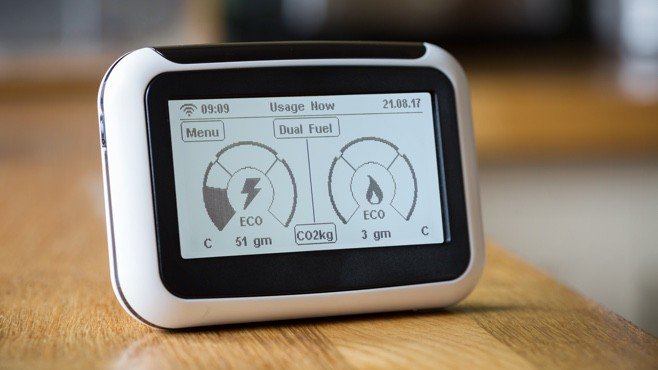Smart meter roll-out: what went wrong
Completion date for UK upgrade is pushed back four years amid technical problems

A free daily email with the biggest news stories of the day – and the best features from TheWeek.com
You are now subscribed
Your newsletter sign-up was successful
The deadline for installing smart meters in every home in the UK has been pushed back from 2020 to 2024 as energy companies warn that the technology is not ready.
According to Sky News, the Government had previously insisted that next year’s deadline was achievable, but after being “plagued by problems including delays in connectivity and issues arising with the batch already in use”, officials said the likes of British Gas, Eon and Scottish Power will now have another four years in which to install the meters.
In a statement released this week, the Department for Business, Energy and Industrial Strategy said it now believes that only around half of UK households will have a smart meter by the original target date. The department also announced that the cost of the rollout has risen from £11bn in 2016 to £13.5bn.
The Week
Escape your echo chamber. Get the facts behind the news, plus analysis from multiple perspectives.

Sign up for The Week's Free Newsletters
From our morning news briefing to a weekly Good News Newsletter, get the best of The Week delivered directly to your inbox.
From our morning news briefing to a weekly Good News Newsletter, get the best of The Week delivered directly to your inbox.
The news has been welcomed by consumer bodies, with Gillian Guy, chief executive of Citizens Advice, claiming the new deadline “gives suppliers time to fix ongoing technical problems and make sure customer service isn’t sidelined as the rollout continues.
“People will still benefit in the long run, but today’s cost-benefit analysis shows focusing on speed hasn’t worked,” Guy added.
What are smart meters?
Smart meters are electronic energy measurement systems designed to replace standard gas and electricity meters.
A free daily email with the biggest news stories of the day – and the best features from TheWeek.com
Once installed, they measure how much gas and electricity a household is using as well as how much the usage costs, and displays both on a screen in the house.
“With a smart meter you can wave goodbye to complicated meter readings,” says Smart Energy GB, the body behind the push to install smart meters in UK homes. “The smart meter shows a digital meter reading and automatically sends the reading to your energy supplier at least once a month, so you will receive accurate, not estimated bills.”
More than 85% of people with smart meters have found ways to reduce their energy consumption, according to Smart Energy GB.
NPower describes the Government’s decision to install smart meters across the country as “one of the biggest national upgrades ever undertaken in the UK”, adding: “It’s not compulsory, but everyone in the UK will be offered a Smart meter and Ofgem require suppliers to ensure as many meters as possible are upgraded by 2020.”
The official national smart meter roll-out began in 2016 and will now finish in 2024.
Why has it been delayed?
The roll-out completion date has been pushed back because of niggling technical problems with the meters up and down the country.
According to The Independent, one of the biggest issues has been “older generations of meters not working when a household has switched suppliers, with the data no longer being sent in real time to suppliers”.
DCC, a government-backed firm, is supposed to be installing infrastructure to ensure the older meters work, but a recent study by Look After My Bills found that some meters were still becoming faulty when switching suppliers - an occurrence known as “going dumb”.
Lily Green, head of research at Look After My Bills, said: “It’s been an open secret in the energy industry that the smart meter deadline will be pushed back.”
USwitch.com’s head of regulation, Richard Neudegg, said that public confidence in the smart meter programme had been “badly damaged”, the BBC reports. “This is now an opportunity to rebuild trust. In particular, people want proof that the solution which allows older smart meters to stay smart when a household switches supplier is finally available.”